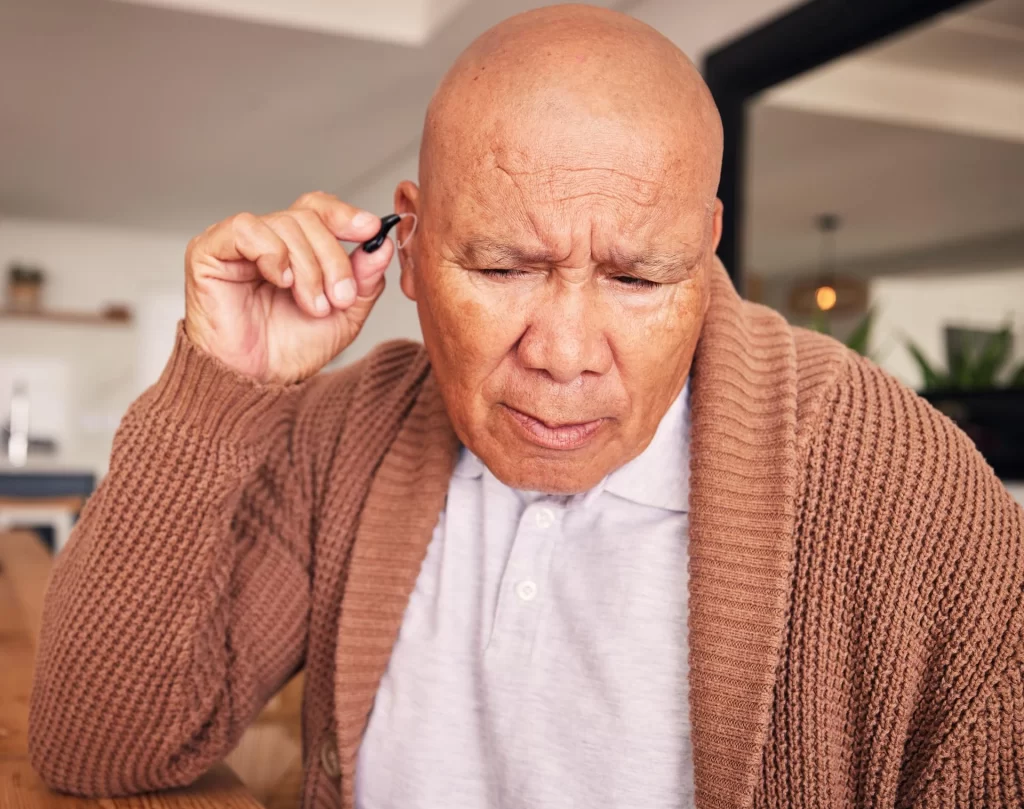Hey, it’s James Barrett here.
The giddy giggle of a child when you tell them a joke.
The comforting warmth in a friend’s voice when they say, “I’ve got your back,”
The calming sound of raindrops on a quiet afternoon.
These aren’t just sounds… they’re moments.
They shape our lives, add color to our experiences, and connect us to what truly matters.
But what happens when these beautiful sounds start to fade into an overwhelming, persistent noise—like a buzz, hum, or ringing in your ears?
It’s not just background noise… it’s a condition called tinnitus, and it can be exhausting, frustrating, and isolating.
If you’re nodding your head or even sighing a bit, then this message is for you. I’m here because I truly believe that addressing hearing issues like tinnitus can restore more than sound. It can bring back the fullness of life.
The Hidden Dangers of Ignoring Hearing Loss

It’s easy to dismiss hearing issues as just an inconvenience, but let’s be honest… it’s much more than that.
Untreated hearing loss is linked to increased risks of depression, dementia, falls, and even a shorter lifespan. In fact, 11% of those with hearing loss suffer from depression, which is more than double the rate of the general population.
And here’s a real shocker…
People with severe hearing loss have up to five times the risk of developing dementia.
Imagine that…
A 25 dB hearing loss equates to a seven-year cognitive decline. These aren’t just statistics. They’re warnings.
Hearing loss affects more than just your ears. It affects your mental and emotional well-being. It can lead to social withdrawal, loneliness, and disconnection from the world around you.
Tinnitus: A Sign of Bigger Problems

Tinnitus, the persistent ringing or buzzing in the ears, isn’t just annoying. It’s a red flag.
About 10% of Americans experience tinnitus, and 90% also have some hearing loss. Untreated, tinnitus can worsen, leading to more significant issues.
For veterans, the numbers are even higher… 60% of those returning from combat suffer from either tinnitus or hearing loss.
If you’re experiencing tinnitus, it’s your body’s signaling that something’s wrong.
But the good news? There’s hope.
Research shows that treating hearing loss can improve mood, enhance cognitive function, and reduce the risk of falls by improving balance.
Remedies include sound therapy, which can retrain your brain to manage tinnitus more effectively, lifestyle adjustments like increasing exercise and social interactions, and taking Zeneara.
Zeneara works to heal the chemical imbalances in your brain, reduce ear ringing, and restore mental clarity, giving you back your life and sanity.
It’s all about finding the right mix that works for you.
It’s Time to Reclaim Your Life

Think about the sounds you cherish. Imagine hearing them clearly again, without the distraction of tinnitus or the frustration of missed words. Addressing hearing loss is about reclaiming life’s precious moments… the laughter, the love, and the calm of nature.
So, why wait?
Get a diagnostic hearing evaluation today if you’ve noticed the signs—ringing, buzzing, or difficulty following conversations. Let’s bring back the fullness of life, one sound at a time.
Do you have a story about hearing loss or tinnitus? I genuinely want to hear it. Your experience matters, and sharing it might just help someone else who’s struggling, too. So, feel free to leave a reply.
Let’s create a space to support one another on this journey toward better hearing and reclaiming life’s most precious sounds.





